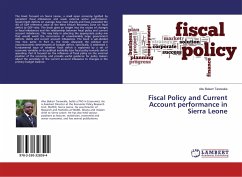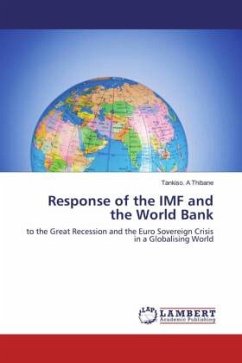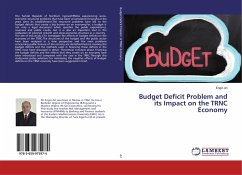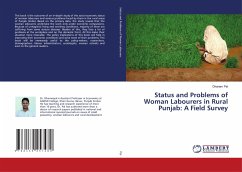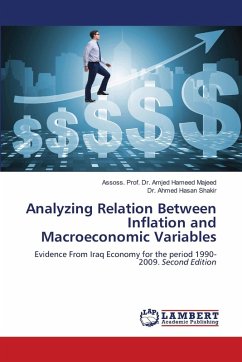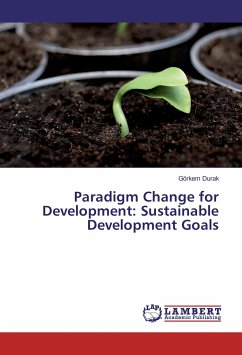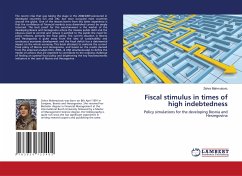
Fiscal stimulus in times of high indebtedness
Policy simulations for the developing Bosnia and Herzegovina
Versandkostenfrei!
Versandfertig in 6-10 Tagen
27,99 €
inkl. MwSt.

PAYBACK Punkte
14 °P sammeln!
The recent crisis that was taking the stage in the 2008/2009 pioneered in developed countries (US and UK), but soon occupied most countries around the globe. One of the lessons learnt from this latter experience is that the confidence of financial markets once diminished cannot be simply returned. The best proof for this ascertainment is the market of the developing Bosnia and Herzegovina where the massive public debt and the obvious need to control and reduce it justified to the public the need for policy reforms, primarily the fiscal policy. The current situation in Bosnia and Herzegovina is...
The recent crisis that was taking the stage in the 2008/2009 pioneered in developed countries (US and UK), but soon occupied most countries around the globe. One of the lessons learnt from this latter experience is that the confidence of financial markets once diminished cannot be simply returned. The best proof for this ascertainment is the market of the developing Bosnia and Herzegovina where the massive public debt and the obvious need to control and reduce it justified to the public the need for policy reforms, primarily the fiscal policy. The current situation in Bosnia and Herzegovina is quite away from the idea of sustainability and continuous economic development and the fiscal deficit has a detrimental impact on the whole economy. This book attempts to evaluate the current fiscal policy of Bosnia and Herzegovina, and based on the results derived from the empirical analysis (OLS, ARDL, & VAR simultaneously) to define the modes of actions that are expected to contribute tothe ongoing challenge of finding an optimal fiscal policy and brightening the key macroeconomic indicators in the case of Bosnia and Herzegovina.



